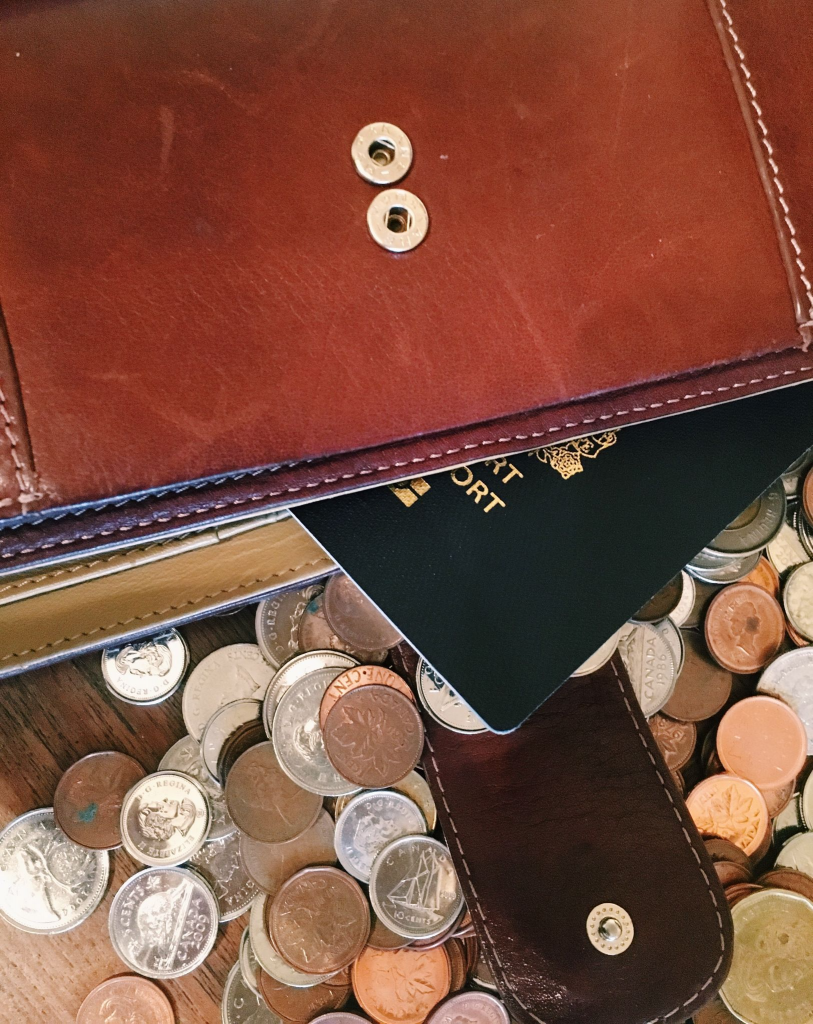Top image: THIS IS ZUN / Pexels
When 22-year-old Alex* was excitedly planning his first overseas trip with a friend in the wake of COVID-19, he didn’t expect it to end in a blowout fight in the KFC of Suvarnabhumi Airport.
The truth is that in most cases, no matter how close friends are, there are sides of each other that they never see before travelling.
The concluding line of a New York Times essay by Tim Kreider—and a meme—proves apt in this situation. “If you want to enjoy the rewards of being loved, you also have to submit to the mortifying ordeal of being known.”
The problem with being known, however, is that sometimes, instead of love, it ends in a bitch fight and a very awkward flight home.

As international borders open and travel deals bombard social media, revenge travel has become a thing.
As travel made its comeback, however, so did travel disaster stories. Forget losing your passport or missing your flights. Some of the juiciest travel mishaps involve conflicts with travel companions.
Travelling with both friends and family come with their own unique challenges. But at least after a tense family holiday, you know that at the end of the day, they’re still family. Trips with friends hold no such guarantee.
Tim Kreider’s words hint at the reason behind the association between friendship break-ups and overseas travel. Spending time together in close proximity, inevitably knowing more about them, and letting yourself be known, is scary.
Because you might just not like what you find.
Clashes in Personality
For one, travelling could reveal aspects of your friend’s personality that you were never privy to in Singapore.
Alex, a student, tells RICE that he caught the travel bug last December. But out of everyone he asked, only one other friend was on board for a Bangkok jaunt—nobody else he knew was available. Not exactly the most auspicious start to a trip.
A two-person trip wasn’t ideal, he says. For one, he feels travelling with more people would be safer. A bigger group could also cover more ground while touring, splitting into different groups based on their interests. Having more people would mean more friends to share the load of planning the trip, Alex adds. But the pair were desperate to get out of the country, so they decided to just take the plunge.
The two had known each other for eight years, but this was the first time they were embarking on an overseas trip beyond Johor Bahru.
“I’ve heard of nightmare stories of travelling with friends and I think maybe a small part of me did expect a small disagreement here and there to occur.”

“But that’s just life. I assumed it wouldn’t turn into a big deal or anything. We were too excited about the trip to consider that we would fight.”
Things were tense from the get-go. On the day of the flight, Alex’s friend realised at the automated check-in counter that her passport did not have six months’ validity. This was despite his previous reminder for her to check her passport in advance.
The stress and anxiety of possibly going on a solo trip had him incredibly annoyed, he says. Fortunately, they managed to get her boarding pass at the manual counter after a warning from the staff.
“I think it was also an accurate omen of how things would eventually transpire,” says Alex.
They ended up arguing over countless matters—big and small—throughout the four-day trip.
He got annoyed when she laughed at an art piece about how women are reduced to domestic objects and called it weird (he found it powerful).
She was angry because he drank too much and she had to take care of him. They even had to pay a fine because he puked in the cab, although they’d agreed beforehand for safety reasons not to get too drunk.
The trip was so full of miscommunication and disagreements that on the last day, tensions bubbled over at the airport. The pair had it out with each other and began listing everything that had made them upset with the other person.

While Alex admits that he made his fair share of missteps, he doesn’t think that conflict could have been avoided entirely even in hindsight.
“I think she and I have clashing personalities sometimes and a trip with just the two of us could not have ended any other way.”
Fortunately, the two have stayed close friends. But it’s no fairytale ending. He says that the trip didn’t strengthen their friendship. If anything, it made them hyper-aware of what they disliked about each other and the gaps in their chemistry.
“But in a way. I think that’s a good thing.”
He says that knowing what pushes each other’s buttons can help them be more mindful and considerate of each other. At the end of the day, this can help preempt and avoid future conflicts.
Money Woes
Another source of friction that appears quite frequently in disaster holiday stories is money.
While on holiday in another country, the stakes are definitely raised money-wise. Financial differences can be easily tolerated during infrequent meet-ups in Singapore but can turn into quite a sensitive topic amongst friends overseas.

SY, a 28-year-old account manager, and 30-year-old Trish, a researcher, say that their travel nightmare took place on a trip to South Korea with a multinational group of friends. The group of eight first met on Twitter, and had travelled together before, albeit in smaller groups.
These shorter trips were usually to nearby countries or hosted by someone else in the friend group. For example, SY, who lives in Malaysia, would play host when the group travelled to Kuala Lumpur, while Trish, who lives in Singapore, would take care of the group when they travelled to Singapore.
In 2016, they decided to take a trip together to Korea. Considering that they were such frequent travellers, they thought that taking a longer and further trip would bode well. But the trip ended up being entirely unenjoyable.
Trish shares that there was one person in the group who, in general, didn’t respect others’ opinions. For example, she insisted on a particular accommodation which was more expensive and farther from the central city area. She also didn’t respect the friend group’s privacy when it came to posting on social media.
The two recall one time where she’d dropped her phone and its phone screen cracked. She insisted it was somebody else’s fault and wanted to pay for its repair with the group’s pooled cash.
When the others confronted her, she wasn’t receptive to their feedback and ended up crying, so the rest of the group gave in.
They add that she would be calculative about the little things, splitting bills down to the cent and asking for the day’s exchange rate to calculate on the spot how much she was owed.
They never had issues about money before in their other trips, and the group has always seemed to be on the same page when it came to budgeting. But differences can become amplified when trips become longer and more expensive.

“Usually when they travel to each other’s countries, the host would take up the responsibility of paying, but a trip to Korea gets a bit more complicated.”
“Korea is a bit more expensive than Kuala Lumpur or even Bangkok. Maybe that’s why she was more particular and calculative,” SY surmises.
Things got so uncomfortable that they started going out in smaller groups to minimise conflict and friction. And after the trip, SY and Trish cut contact with their problematic friend.
“After that it was very different. We no longer could have conversations like before,” Trish says.
“I would have not gone on the trip, knowing what I know now,” she adds.
SY shares the same sentiment. “Or I would have gone separately, and just met her for dinner.”
Trish admits that the success of shorter trips does not guarantee the success of longer-haul trips.
“It really is a gamble.”
Keep it Clean
Another side of our friends we’re rarely exposed to is their personal hygiene. Darren, 27, a marketing analyst, shares that a trip with his friends revealed some shocking habits.
For his graduation trip, he and two others decided to backpack for 28 days through Europe. Things started going south when he realised that one friend’s idea of hygiene differed vastly from his.
“He’ll sit on my bed without showering. He’ll accidentally throw his dirty clothes onto my side of the bed, and walk around the room without his clothes, naked.”
Darren was shocked when this particular travel companion didn’t want to buy a towel and planned on only using the one hand towel he brought for the whole month. The reason his friend cited was to save space because they were backpacking, but to Darren, a towel was still a necessary investment.

He recounts how his friend wouldn’t shower daily, especially on days that were “too tiring”.
“On the days that he has to share a bed with me, this was really off-putting.”
After a week of putting up with it, Darren decided to confront him. Luckily, his friend took it well. They talked over drinks, and came to the decision that they would arrange to have different beds at their upcoming accommodations wherever possible.
Fortunately for them, the rest of the trip went well after the conversation, and the two are still friends.
Darren shares that because the two had stayed in the same university hostel before, and had known each other for four years, he was cognisant that his friend tended to be lazy.
“I planned for the trip, factoring in the possibility that he might not wake up on time for certain plans. But in terms of things like personal hygiene, it was something I did not expect. It threw me off.”
Something as personal as hygiene would hardly concern your friends back in Singapore.
But when you share the same space for an extended period of time, the need to be on the same page when it comes to hygiene becomes especially important.
Darren says that he wouldn’t have done anything differently because he had already prepared as best he could.
“There are some things you won’t discover until you go on that trip.”
Sharing a similar sentiment to Alex, Darren says the trip didn’t exactly improve his relationship with his friend.
“But I can definitely say I know a lot more about his behaviour.”
Travel, the Ultimate Friendship Test?
Most travel guides and advice listicles out there will tell you that communication before your trip is the key to avoiding friendship break-ups. But while most things can be resolved by being open and frank with each other, there are some things that you’ll only know when you pull the trigger and go on that trip.
The truth is, we probably don’t know our friends all that well. Some of our friends we only know in an academic setting or professional context. Others, although we’ve known them for years, are unaware of our living habits.

The pressure of travel and multiple days of living together in an unfamiliar environment is where most of your true self is revealed. And the truth is, your friends might not like your other sides, and vice versa.
The countless overseas vacations that have heralded friendship breakups hint at what lies under the surface of our friendships. It’s easy to maintain peace and stay friends in Singapore, where we can have our own personal space. But what we don’t know about each other is quite possibly what keeps our friendships intact.
Maybe this is the only situation where the less you know, the better.






